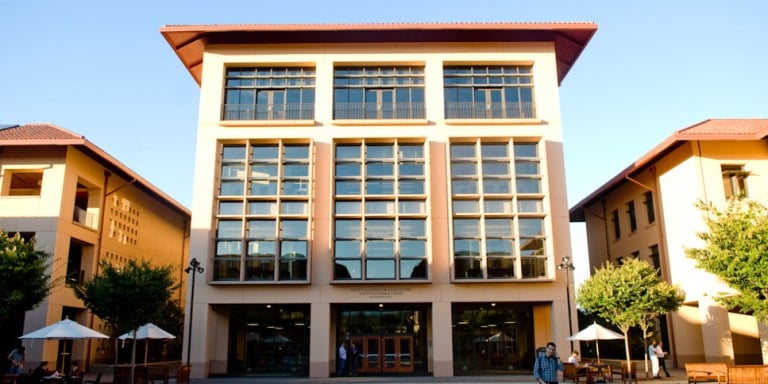Leaked financial aid data from Stanford’s Graduate School of Business (GSB) suggests that the school awards fellowships based on applicants’ gender, immigration status and work experience, according to an analysis performed by a current student who found the confidential data in a shared folder. The GSB previously claimed to award scholarships based solely on need.

The revelation that the GSB’s policy of awarding financial grants differed from actual practice came in the form of an extensive statistical report prepared by GSB student Adam Allcock M.B.A. ’18. Jonathan Levin, dean of the Graduate School of Business, responded to the report in an email addressed to the entire GSB. Dr. Levin explained that while the “GSB admits students on a need-blind basis, and admitted students may apply for financial aid,” additional financial awards have also been given.
“The school has offered additional fellowship awards to candidates whose biographies make them particularly compelling and competitive in trying to attract a diverse class,” Levin wrote.
The existence of these fellowships was not publicly disclosed before Allcock’s report.
According to Allcock’s report, women received preferential financial incentives to attend the GSB, while fellowship award patterns also showed “systemic biases against international students.”
Those with investment and finance backgrounds also often received more financial incentives from the GSB than expected from need-based aid, according to the Business School website Poets and Quants, which reviewed Allcock’s report. Prior experience in finance is an important qualification for landing high-paying jobs in the field. Poets and Quants reports GSB graduates who received offers from Private Equity firms commanded an average starting salary of $177,500, and offers from VC firms clocked in at $167,500. The average starting salary of a GSB graduate was $136,000.
Levin articulated the need for better communication in the future.
“I believe that a preferable approach, going forward, is to be significantly more transparent about the principles and objective being applied in making financial aid awards,” Levin wrote.
Allcock generated his report from confidential data improperly secured on GSB servers, which made the 2008-2015 financial aid data — including students’ income and asset information, and information on prior employment — accessible to GSB faculty, staff and students. According to Levin, a data forensics company was also hired to review the breach and determine if other files were improperly secured and accessed.
The data leak from the GSB was a separate event from a University-wide data breach recently discovered by The Daily that affected over 200 people.
In an email to The Daily, Allcock wrote on the importance of financial aid and clear guidelines on awards for students. An international student, Allcock’s visa places restraints on the jobs he can hold, limiting his financial flexibility.
“[Financial aid] especially affects international students who are often cash poor, and simply don’t have money to join their classes on trips and activities,” said Allcock. “If we can’t earn money and receive less than the cost of living, how do you expect us to live?”
Contact Nicholas Midler at midler ‘at’ stanford.edu.
